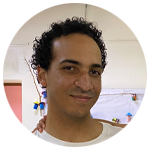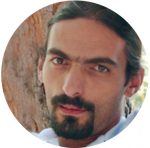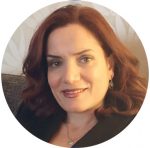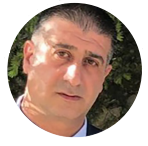Hướng dẫn bảo quản sản phẩm in vải 3D để sản phẩm bền đẹp hơn.
Xưởng in vải 3D uy tín tại Hà Nội
Xưởng in vải 3D là nơi chuyên sản xuất và in ấn các sản phẩm vải có độ phân giải cao, cho ra những sản phẩm vải 3D đẹp mắt, sống động và chất lượng. Xưởng in vải 3D sử dụng công nghệ in phun tiên tiến kết hợp với các loại mực in chất lượng để đảm bảo màu sắc và độ bền tốt nhất cho sản phẩm in.
Các sản phẩm in 3D từ vải được sử dụng rộng rãi trong các lĩnh vực như thời trang, quảng cáo, trang trí nội thất và nhiều lĩnh vực khác. Với sự phát triển của công nghệ in 3D, việc in ấn lên vải cũng trở nên phổ biến hơn, đem lại nhiều lợi ích cho các doanh nghiệp và cá nhân sử dụng.
Tại xưởng in vải 3D, quy trình sản xuất và in ấn được thực hiện bởi các chuyên gia có kinh nghiệm trong ngành in. Họ sử dụng những thiết bị và máy móc chất lượng cao để đảm bảo sản phẩm in được đạt độ chính xác và độ phân giải cao nhất.
Để đáp ứng nhu cầu khách hàng, xưởng in vải 3D cung cấp đa dạng các loại vải để in ấn, từ các loại vải nhẹ đến các loại vải dày và cứng. Khách hàng có thể lựa chọn mẫu mã và thiết kế riêng cho sản phẩm của mình, hoặc có thể nhờ đội ngũ thiết kế chuyên nghiệp tại xưởng in vải 3D giúp đỡ.
Với sự phát triển của công nghệ in 3D, xưởng in vải 3D đang trở thành một ngành công nghiệp mới, đem lại nhiều tiềm năng phát triển trong tương lai. Nếu bạn đang có nhu cầu in ấn lên vải với chất lượng cao và độ phân giải 3D, hãy tìm đến các xưởng in vải 3D uy tín để đảm bảo chất lượng sản phẩm của mình.
xưởng in chuyển nhiệt uy tín tại Hà Nội
Xưởng in chuyển nhiệt là một trong những địa chỉ quen thuộc của những ai đam mê thời trang, thể thao, công nghệ in ấn và sản xuất quảng cáo. Tại đây, bạn có thể tìm thấy các dịch vụ in chuyển nhiệt chất lượng cao, với đầy đủ các loại vải, mẫu mã, hình ảnh, kích thước, và kiểu dáng.
Với quy trình in chuyển nhiệt, hình ảnh sẽ được chuyển sang giấy decal, sau đó được truyền nhiệt lên bề mặt vải thông qua quá trình nén và nhiệt. Quy trình này giúp cho hình ảnh được chuyển sang bề mặt vải một cách nhanh chóng, chính xác và đẹp mắt. Nó cũng cho phép in các hình ảnh với độ phân giải cao, các màu sắc tươi sáng và số lượng lớn.
Xưởng in chuyển nhiệt cung cấp dịch vụ in áo phông, áo đồng phục, áo thể thao, quần áo, cặp sách, nón, túi xách, và nhiều sản phẩm khác. Các sản phẩm được in ấn với các mẫu mã đa dạng và độc đáo, tùy thuộc vào nhu cầu và yêu cầu của khách hàng.
Ngoài ra, xưởng in chuyển nhiệt còn cung cấp dịch vụ thiết kế và tư vấn cho khách hàng về các ý tưởng in ấn và sản phẩm. Khách hàng có thể cung cấp cho xưởng một mẫu thiết kế hoặc ý tưởng, và các chuyên gia tại đây sẽ đưa ra các gợi ý và phương án để đạt được kết quả tốt nhất.
Với sự phát triển của công nghệ in chuyển nhiệt, xưởng in chuyển nhiệt đã trở thành một trong những địa chỉ uy tín và chất lượng nhất cho dịch vụ in ấn trên vải. Với đội ngũ nhân viên giàu kinh nghiệm, trang thiết bị hiện đại và chất lượng sản phẩm đạt tiêu chuẩn cao, xưởng in chuyển nhiệt sẽ là địa điểm lý tưởng cho những ai đang tìm kiếm một địa chỉ tin cậy để in ấn sản phẩm của mình.
Biladi
Biladi is an independent Lebanese non-governmental organization (NGO) specialized in heritage preservation. Created in 2005, Biladi has long-term established partnerships with national and international entities.
Biladi strongly believes that heritage is a basic human right; thus, everybody should be able to know it, live it and love it. Raising awareness about the importance of tangible and intangible cultural heritage and contributing to safeguarding it are crucial for developing and fostering a sense of identity and belonging.
Biladi is active in two main areas: Safeguarding and Education.
Objectives and Goals
We believe that heritage is an essential component of cultural identity and plays an important role in promoting social cohesion.
In a region going through profound crisis and changes, safeguarding heritage constitutes a vital tool to foster peoples’ attachment to their cultural identity and provides them a sense of stability. This fact was witnessed by Biladi’s founder and manager, Joanne Farchakh Bajjaly, archaeologist and journalist, who worked for many years on heritage in Lebanon, Syria, and Iraq.
When working as a journalist covering the war in Iraq, Joanne Farchakh Bajjaly witnessed a systematic process of looting, destructing as well as damaging museums and archeological sites, which resulted in shifting priorities: basic needs were put back in the foreground while the standing of heritage was diminished. Back in Lebanon, she realized that defending heritage had to be an integral part of the educational system to ensure that young generations in conflict and post-conflict countries are aware of the importance of their history and capable of reintegrating heritage in their daily life.
At this point, Biladi was created. The objective was (and still is) to narrow the huge gap in the perception of heritage between today’s and previous generations. Starting with on-site tours and workshops at historical, archaeological, and natural sites for the youth, Biladi was fully dedicated to heritage education. Since the beginning, a special educational material was created and is constantly updated. As for the activities and sub activities, they were (and still are) carefully conceived to transmit information about tangible and intangible cultural heritage in a creative and innovative ways.
Over the years, it became clear that heritage professionals working within heritage institutions play a tremendous role in safeguarding and maintaining heritage. Unfortunately, they don’t always have the capacity to implement the measures they propose.
Raising awareness about the importance of tangible and intangible cultural heritage and safeguarding it have therefore become BILADI’s mission.
TEAM
Biladi TEAM
Project Management
Joanne Farchakh Bajjaly is an archaeologist and journalist who worked from 1998 till 2013 in Lebanon, Syria, and Iraq documenting the discovery and destruction of heritage in the Middle East. In 2005, she founded Biladi, an NGO dedicated to the promotion and safeguarding of heritage through training for professionals and educational activities Joanne is currently the program manager at Biladi and CER-HUB Lebanon.
Dr. Rana Dubeissy is an architect. She has worked in Japan, China, Cuba, New York, and Belfast and has been an associate professor in the Department of Architecture at the Lebanese University since 2007. She has several publications on feminism in architecture, reconciliation architecture, cultural Heritage, and adaptive reuse. She holds a PhD in architecture from the University of Tokyo in Japan. Rana is currently active in rehabilitation and consolidation training projects for emergency response in times of conflict.
Dr.
Farchakh Frangieh is a professional translator and a university professor who
has translated numerous books, articles, academic courses, and studies. She has
more than 12 years of academic experience working in several universities in
Lebanon. She holds a PhD in Translation Studies and has participated in many
international conferences and has published scientific articles and a book in
her field of research. Georgette is currently in charge of monitoring,
evaluation and reporting at Biladi.
Financial and administrative
Clara Achkar is a professional auditor. She holds a bachelor’s degree in auditing and has more than 18 years of experience. Clara is currently responsible for bookkeeping, budgets and reporting, as well as all tasks related to the Ministry of Finance, NSSF and the Ministry of Interior.
Elie Sfeir is responsible for logistics and ensures the smooth running of all Biladi projects.
MEDIA AND PUBLICATION
Sophia Chaccour is an Art Historian specialized in Contemporary Art. She holds a Bachelor of Science in Architecture, an M.A in Cultural Expertise and a Master’s degree in Art History. She has 6 years of experience in Cultural Communication in the public and private art market. Sophia is currently in charge of Biladi’s communication strategy and community management.
Scientific committee

Dr. Neil Brodie is an archaeologist and senior research fellow on the endangered archaeology of the Middle East and North Africa Project at the University of Oxford. He has held positions at the British School at Athens, the McDonald Institute for Archaeological Research at the University of Cambridge, where he was Research Director of the Illicit Antiquities Research Centre, Stanford University’s Archaeology Center, and the Scottish Centre for Crime and Justice Research at the University of Glasgow. He is a member of the UK Committee of the Blue Shield, an Expert member of the Global Initiative against Transnational Organised Crime, and a Corresponding Member of the Archaeological Institute of America. Neil has worked on archaeological projects in the United Kingdom, Greece and Jordan, and continues to work in Greece.

Karl Habsburg-Lothringen
Karl Habsburg-Lothringen is a specialist in cultural heritage protection in times of conflict and a well-known figure in the defense of the world’s minorities and ethnic groups. He is a founding member and Chairman of Austrian National Blue Shield Committee and was President of Blue Shield International from 2008 to 2010. Karl is an Austrian politician and head of the House of Habsburg. Since 1986, he has been President of the Austrian branch of the Pan-European Union and was a Member of the European Parliament for the Austrian People’s Party from 1996 to 1999.

Professor Peter Stone, OBE, is a cultural heritage protection specialist. He has been the President of Blue Shield International since 2020 and has chaired the UK National Committee of the Blue Shield since its founding in 2012. He is the UNESCO Chair in Cultural Property Protection (CPP) and Peace at Newcastle University, UK. He has published widely on heritage management, interpretation, education, and CPP. Peter has been involved in CPP since 2003, when he was advisor to the UK Ministry of Defence regarding the protection of cultural property in Iraq. He has written 17 papers on CPP and co-edited, with Joanne Farchakh Bajjaly, “The Destruction of Cultural Heritage in Iraq” (2008). His article “The 4 Tier approach” led directly to the establishment of a CPP Unit in UK forces.

Cameron Middleton is an ethnographic researcher, focusing on how culture and community is preserved and regenerated in crisis and displacement. For the past 10 years, she has worked with displaced communities throughout the Levant and in the US and South Asia to understand what it takes to make a place a home following loss and destruction. Cameron has been working since 2019 with UN Habitat on developing new research and trainings tools to integrate storytelling methods into urban profiling and training on Housing, Land and Property rights.

INGRID BOUILLER
Ingrid Bouiller is a speech-language pathologist and communication expert with over 20 years of experience in the field. She has extensive experience in training trainers and assessing team work and projects implementation. She has extended her work to therapeutic coaching, integrating key principles of transactional analysis and emotional intelligence to help people build healthy interpersonal relationships in their personal lives and their organizations. She is a member of the scientific committee and educational consultant at Biladi.

Tom-Isaac Bermiron is a professor of History, Geography and Moral and Civic Education in the French curriculum. He has been active in Lebanese schools and the academic field since 2011. He is the co-author of children’s textbooks introducing the history of different civilizations that have influenced and/or occupied the current Lebanese territory. Tom-Isaac is currently a teacher at Collège Saint Joseph, Antoura.
FoundERS & board members
Joanne Farchakh Bajjaly is an archaeologist and journalist who worked from 1998 till 2013 in Lebanon, Syria, and Iraq, documenting the discovery and destruction of heritage in the Middle East. She has written for several Lebanese newspapers and co-edited with Professor Peter Stone the book “The Destruction of Cultural Heritage in Iraq”, winner of the James R. Wiseman Book Award in 2011. After witnessing the loss of heritage, she decided to start “working” on the topic. In 2005, she founded Biladi, an NGO dedicated to the promotion and safeguarding of heritage through training for professionals and educational activities. In 2015, she collaborated with colleagues to create the Lebanese Committee of the Blue Shield and launched with Blue Shield International several training programs for UNIFIL forces in South Lebanon and heritage professionals. After the Beirut Blast on the 4th of August 2020, she coordinated the Blue Shield International and CER mission to safeguard the destroyed heritage in collaboration with the Lebanese Armed Forces, the UNIFIL, the Directorate General of Antiquities and the Heritage sector in Lebanon. Joanne is currently the program manager at Biladi and CER-HUB Lebanon.

Philip Bajjaly is a filmmaker who works on documentaries in Lebanon and other Arab countries, focusing mainly on issues of human development, social problems and Heritage preservation. His work includes: “Casualty of war”, a documentary that deals with the looting of Baghdad Museum after the US invasion of Iraq; “Home”, which highlights the unbearable living conditions in psychiatric asylums in Lebanon; and “Someone like me”, a testimony to the difficult living conditions of Palestinian refugees in Lebanon. His films have been broadcast on Al-Jazeera Documentary Channel, Al-Jazeera Arabiya and al-Arabiya. Philip is currently in charge of the multimedia department at Biladi.

Salim Mouawad is an independent consultant specializing in the past and peacebuilding. He holds an M.A. in conflict management and analysis and works on the integration of marginalized Arab youth into public life through education about transparency, accountability and democracy in government. To achieve his goal, Salim has adopted informal and interactive educational programs to empower Lebanon’s future generations through the Sustainable Democracy Center (SDC). Salim has also been active in the African Great Lakes Region, working with the international NGO “War Child”.

Suzanne Baaklini has been a journalist with the newspaper “L’Orient le Jour” since 1997. She works mainly on social and environmental issues and is the author of numerous articles on the endangered natural heritage in Lebanon. She has participated in training programs on environmental journalism, first as a trainee and then as a trainer, with international institutions. She regularly covers UN summits on climate change. Suzanne holds an M.A. in French literature from Saint Joseph University.
Dr. Farchakh Frangieh is a professional translator and a university professor who has translated numerous books, articles, academic courses, and studies. She has more than 12 years of academic experience working in several universities in Lebanon and has been since 2014 a full-time professor at the Lebanese University – Center for Languages and Translation, where she served as Head of the Translation Department from 2016 to 2019. She holds a PhD in Translation Studies and has participated in many international conferences and has published scientific articles and a book in her field of research. Georgette is currently in charge of monitoring, evaluation and reporting at Biladi.





